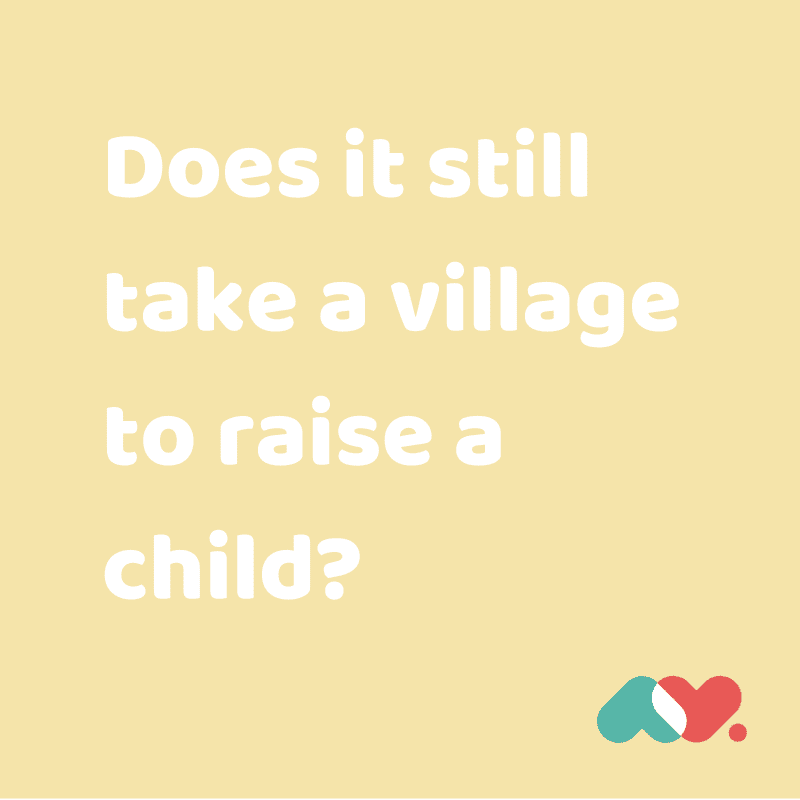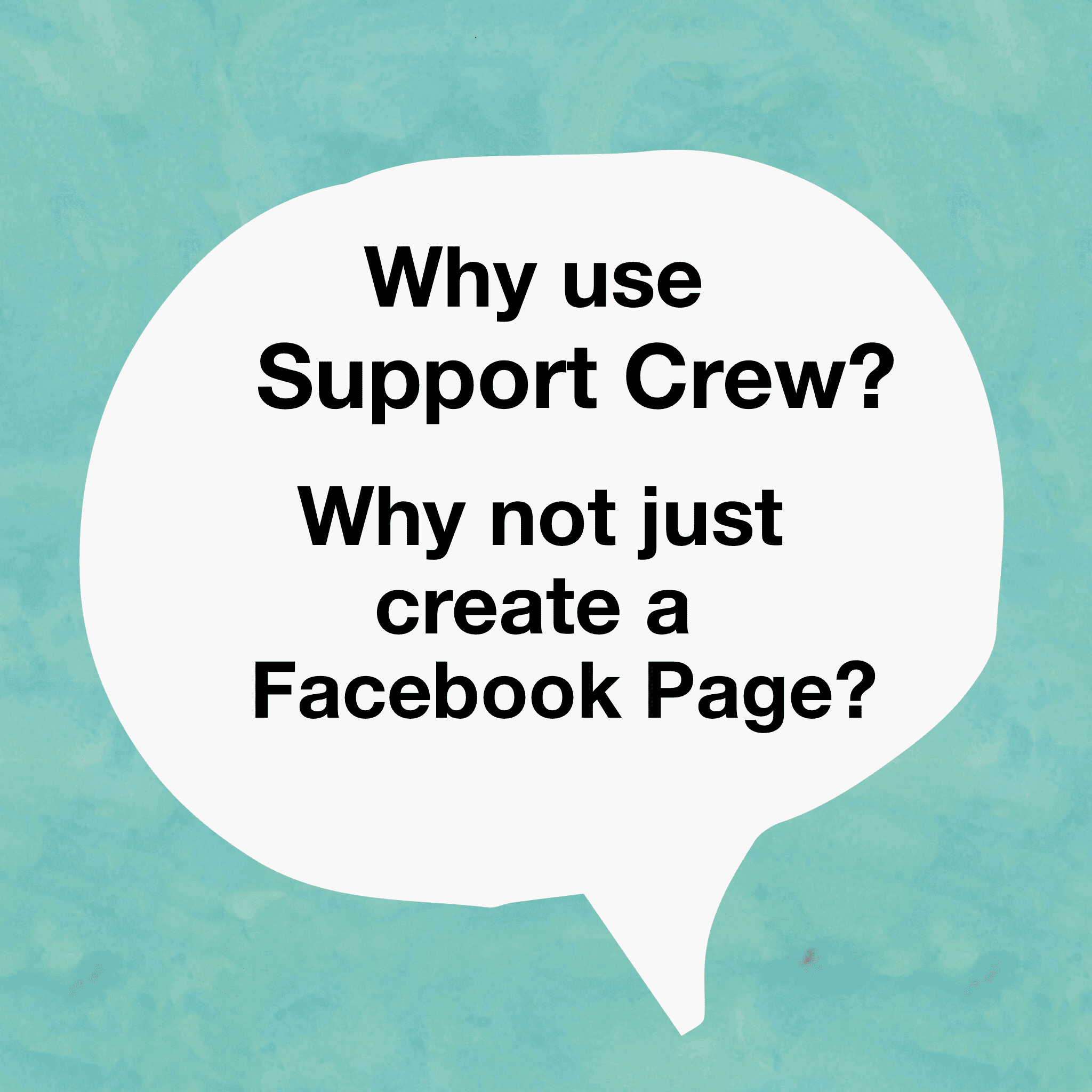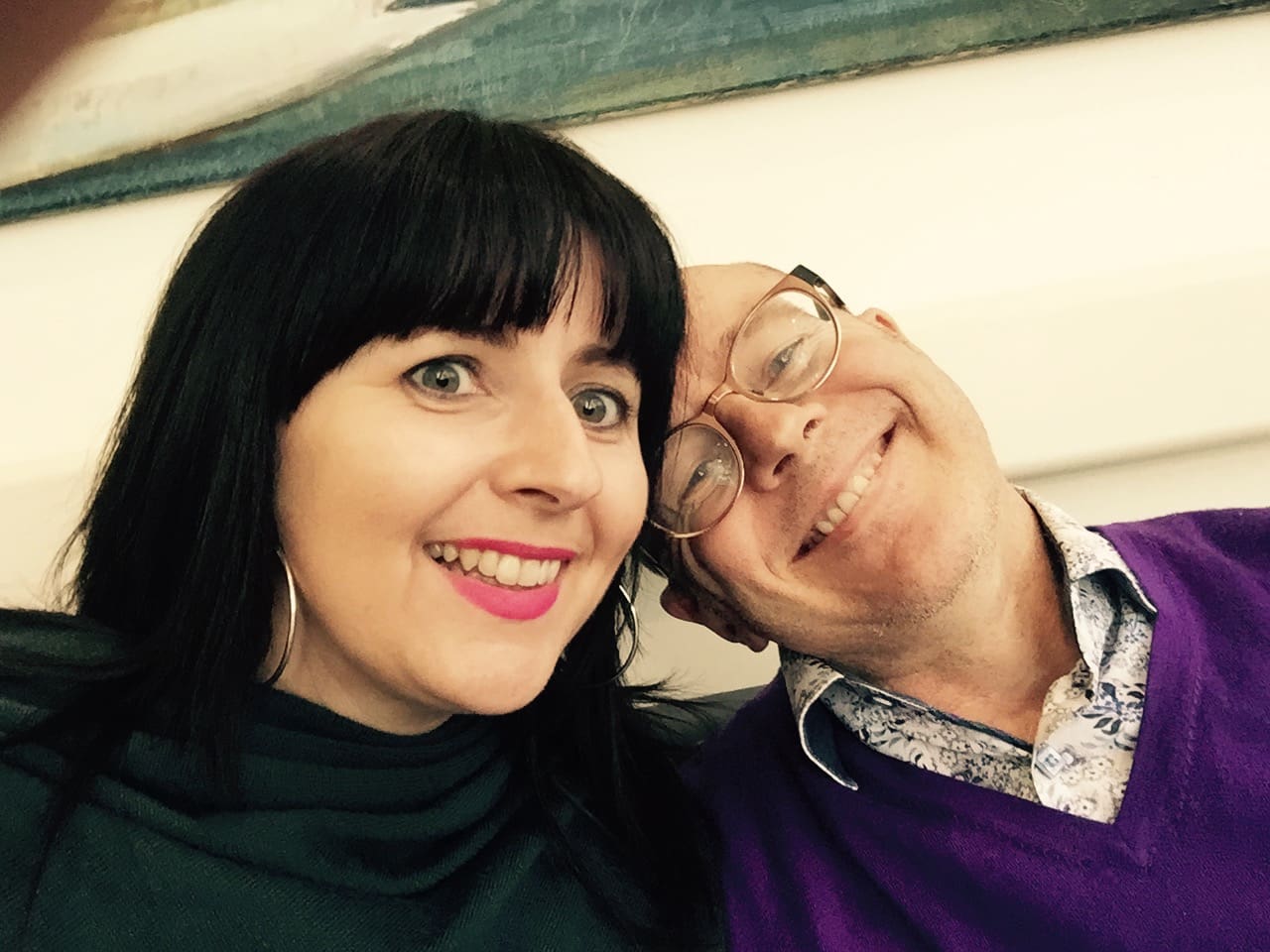
The Reluctant Care Giver: I don’t remember filling out this application form!
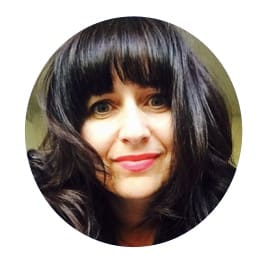
Kelly Banks is the Co-founder of Support Crew, along with her good buddy Janine Williams.
In the first of many, Kelly shares with us her journey to becoming a ‘Reluctant Caregiver’ after her partner Randal was diagnosed with stage 4 bowel cancer. As you’ll see, the journey has been one of the inspirations for Kelly and Janine to start Support Crew.
It’s been two years. So, it seems fitting to share my story about what it’s like to be thrust into the role of a caregiver. This is my story. It’s not anyone else’s, and it’s not Randal’s (you’ll hear more about him later) because no one can really know what it’s been like for him.
So, who’s this Randal bloke?
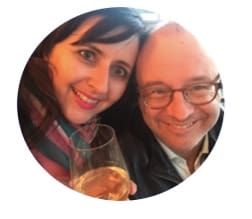
Kelly and Randal celebrating
their first clear scan!
Randal is my fiancé. We have been together for nearly 9 years and Randal was diagnosed with stage 4 bowel cancer with metastasis in this liver two years ago. This basically means that he had a tumour in his bowel (primary), and those cancer cells had spread and set-up camp in his liver (secondary).
During this time, he’s had radiation, chemo and four surgeries, two of which have been for recurrences in his liver. That’s when the pesky little blighter comes back again. And we’re just about to have his fifth surgery, because that pesky little blighter is persistent. But don’t worry we’ve totally got this.
How did this all come about?
The day that we found out that Randal had a tumor in his bowel, I was scheduling my busy and important day around dropping him off and picking him up for a colonoscopy. Little did I know, this would turn out to be a little bit of a dry run for the months to follow.
The situation unfolded itself in layers. We didn’t get to the part where we knew all the information in one go, at one single point in time.
First it was finding out that he had a tumour in his bowel, and that it was cancer, and that was life changing. Then after a liver scan to check that it hadn’t gone to the liver, we were devastated to find out it had.
Then we had to have another scan, an all-over body PET scan, to check to see if it had set up camp anywhere else. And if it had…well that would have been pretty bad news. And every time you have a PET scan, it’s painstakingly difficult to wait for the results.
The news we’d all waiting for…
When the surgeon called, to tell us that his cancer hadn’t spread anywhere else, strangely, this was the single happiest moment of my life. It’s extraordinary that a week ago we found out that Randal had bowel cancer and it was life changing…and then days later we found out that it was also in the liver and it was devastating.
It was one blow then another. And then, here we were, finding out that exact same news that we’d have just a week ago…but this time that he ONLY had bowel cancer with a secondary in the liver…and it was the happiest moment of our lives! Oh how our perspective had changed!
And it’s almost like we needed to find out this way. To be grateful for what we had and to be ready to take it on. And that we surely were!
It’s kinda like being in pain, and then finding yourself in agony. And then when you’re no longer in agony, but just in pain, you realise how bearable pain can be.
So what was the plan Stan?
Randal’s treatment plan to deal to the cancer involved five weeks of radiation treatment, six months of chemotherapy, bowel surgery and a liver surgery. It took us just over a year to get to that point and since that time he’s had three recurrences in his liver which we have swiftly dealt to with two more surgeries and we’re about to deal to the third.
What do you mean by ‘Reluctant Caregiver?’
I’ve been an unofficial caregiver for nearly two years now. And I say caregiver, but the role has many titles… the carer, chief organiser, the boss really…and at Support Crew we call this role the Support Chief.
And you’re probably wondering, why does she think of herself as the ‘Reluctant Caregiver’? Well, it’s a bloody good question. Here’s why:
- it’s a role that I didn’t apply for
- it doesn’t pay that well
- it’s a role I didn’t think that I had the skills for
- it’s one that’s changes your life and your relationship forever.
But it’s also a role that I’m extremely grateful and privileged to have because caring for someone is one of the greatest gifts that we get in this life.
I’d actually been practising being a caregiver, in its many shapes and forms, for seven years prior, because Randal also has Multiple Sclerosis (MS). But that’s another story.
What I’ve discovered about being a Reluctant Caregiver, is that I felt that I was a pretty shitty caregiver and that I wasn’t doing a very good job. This was mainly because we had so many kind, loving people say to us “let me know what I can do to help”. And I didn’t know what to say to them. Mostly because I had two big problems:
- I was so overwhelmed I didn’t even know what help I needed
- Even if I did know, I found it extremely difficult to ask for help.
Now, I’ve since learnt, that whilst being extraordinarily well meaning, saying “let me know what I can do to help” or “what can I do to help” isn’t the best thing to say to someone going through a tough time.
Can you see why? Don’t worry if you can’t cause it took me over a year to get there! The problem with “let me know what I can do to help” is that it puts the responsibility on the person going through the difficult time to:
- Know what help they need
- Be able to ask for help.
So, you can see why it’s a little bit broken huh?
So, do you see the problem? The above two things are exactly what I was struggling with. And two big things end up happening. The first – people don’t get the help they really need because they don’t know what help they need and struggle to ask for it. The second is that friends and family are left wanting to help but not knowing how.
What a pickle!
So, we need something, don’t we? Something that’s easy and instinctive and helps us to ask for the help we need, without feeling like we’re actually asking, no matter what our lifes’ challenge is. Because the need for help is universal – whether it’s because you’re dealing to cancer, having a new baby, have a sick child, or because of any another health or life changing event.
So how can we fix it?
So, as you may be able to see, this is where the inspiration for starting Support Crew came from. To develop a platform, that helps people figure out what help they need, and to be able to ask for it in a way that doesn’t make them feel like they are asking.
And super importantly, to develop a platform that makes it easy for those who want to help, to know how. And that’s the really easy bit, because one thing that’s become super apparent in this journey so far, is that people are super willing to help and to give.
And in retrospect, if we had already developed Support Crew when Randal was diagnosed, I would have used the Support Crew platform to:
- manage the offers of help to take Randal to radiation appointments
- five days a week for five weeks – eek! We had so many wonderful people who took Randal to his appointments so it would have been a great way to organise these offers of help. I could put in a request for help with transport each day, people could see what days were available, and accept those days they could help with.
- request help with meals
- I really struggled with dinners…often home after working all day, sometimes taking Randal to a radiation appointment at 4.00pm and getting home not realising I was too shattered to cook dinner.
- share updates and communicate with the large number of people that wanted to know how Randal was doing.
- receive messages of support all in one place. These are really what keep us going through this journey, and to have a place where they are all in one place, for the times you need to flick through them to keep going, would have been awesome.
- manage the requests for help over the long period of time that we needed support.
- Randal had six major steps (and about to have seven) in his treatment – chemo, radiation and four surgeries, all of which are significant just in themselves. Everyone has been so amazingly supportive, particularly in the first few weeks. But with any life changing event, the need for support transcends through those first few weeks.
If you want to see how Support Crew might have been helpful when dealing with having a premature baby, check out my gorgeous Co-founder Janine Williams’ article on just that here.
What’s Support Crew really all about?
We’ve set-up Support Crew for the sole purpose of helping others. I think people love the idea of Support Crew because they have the opportunity to become part of something that is bigger than just themselves.
So come along this journey with us. Help others with us. Change the world with us.

